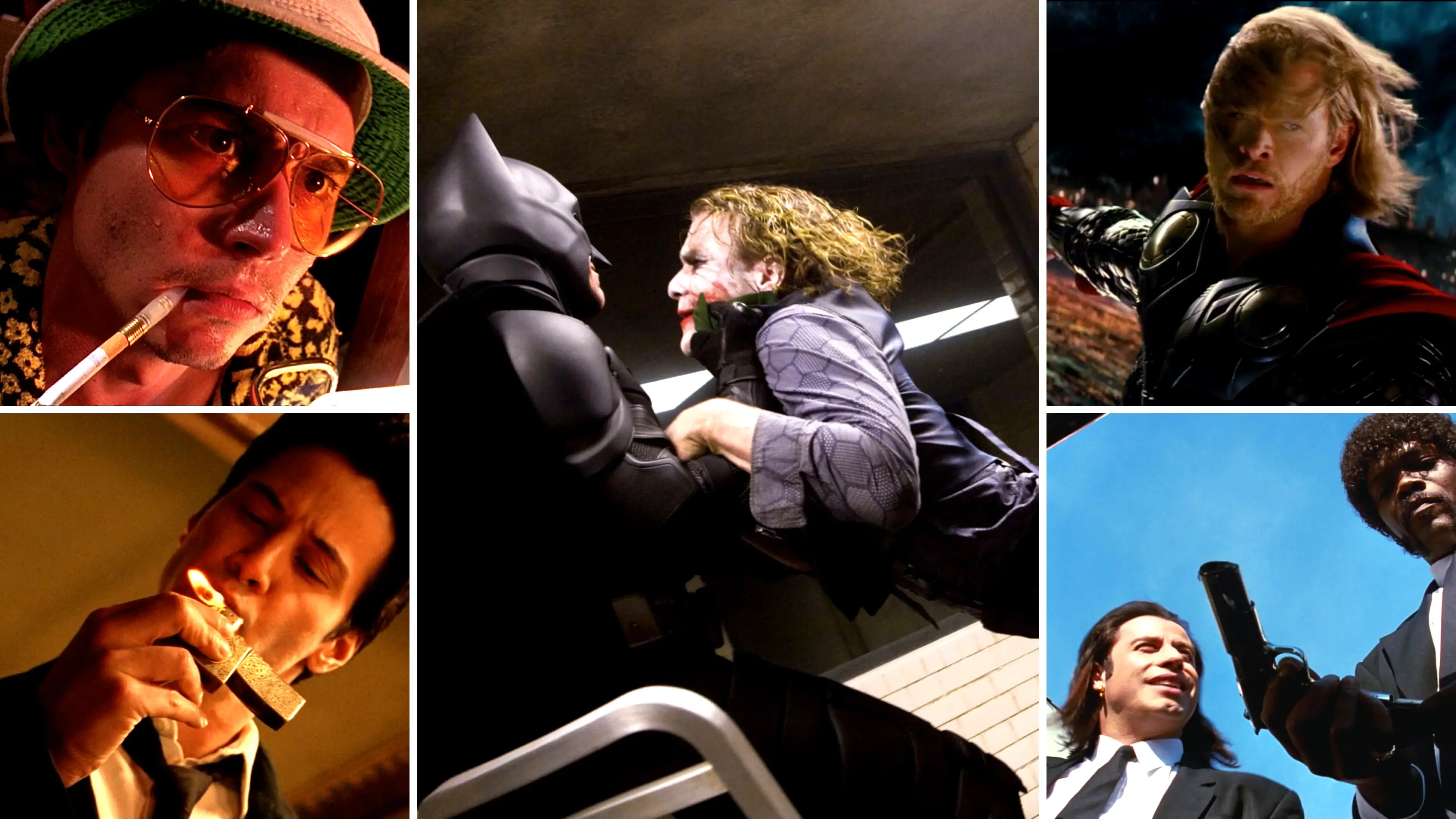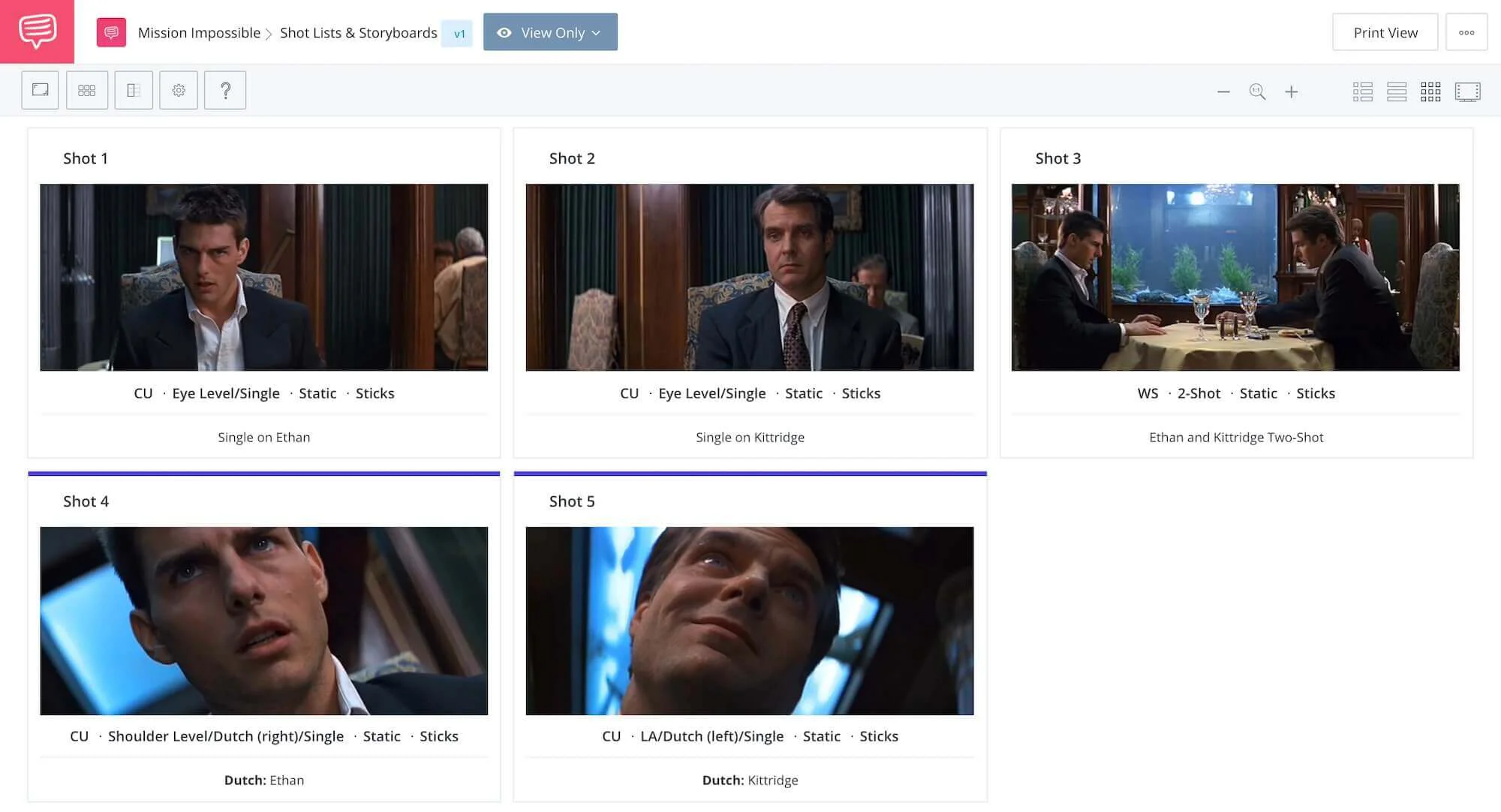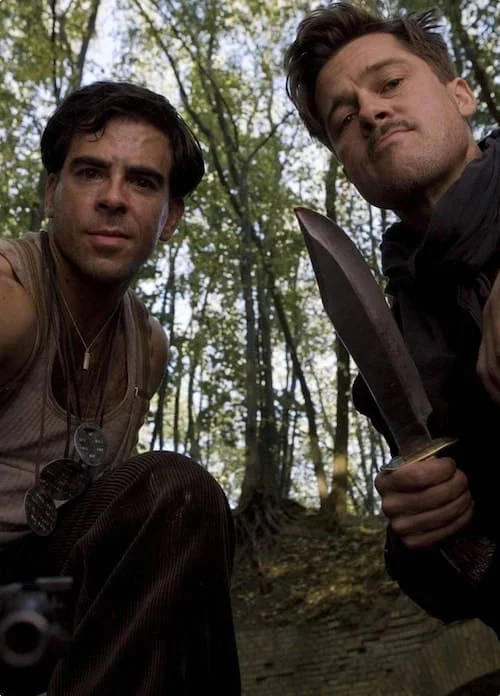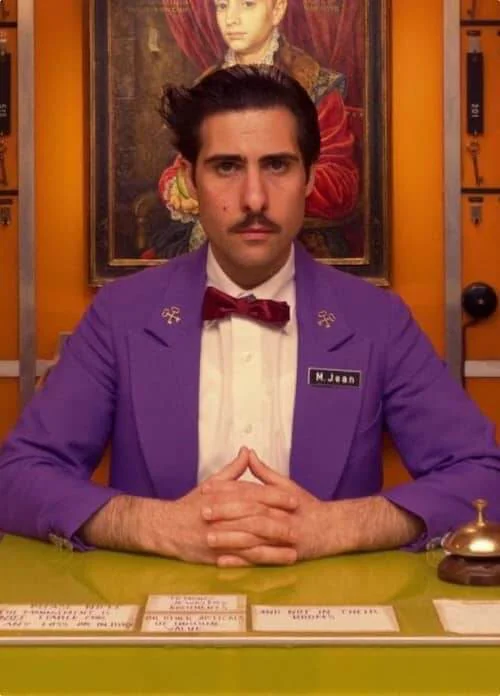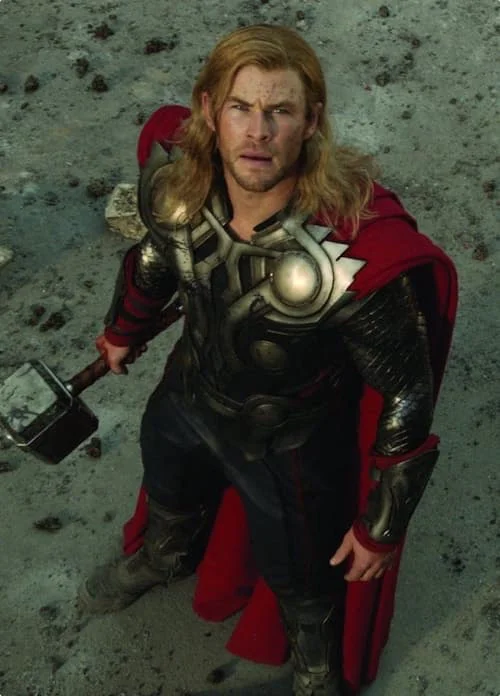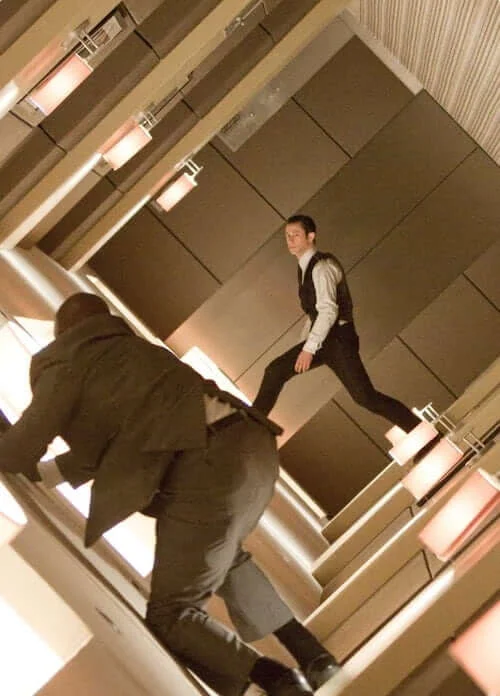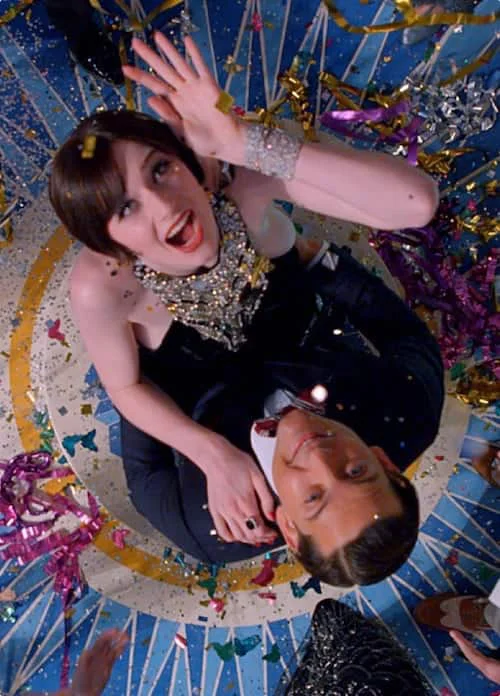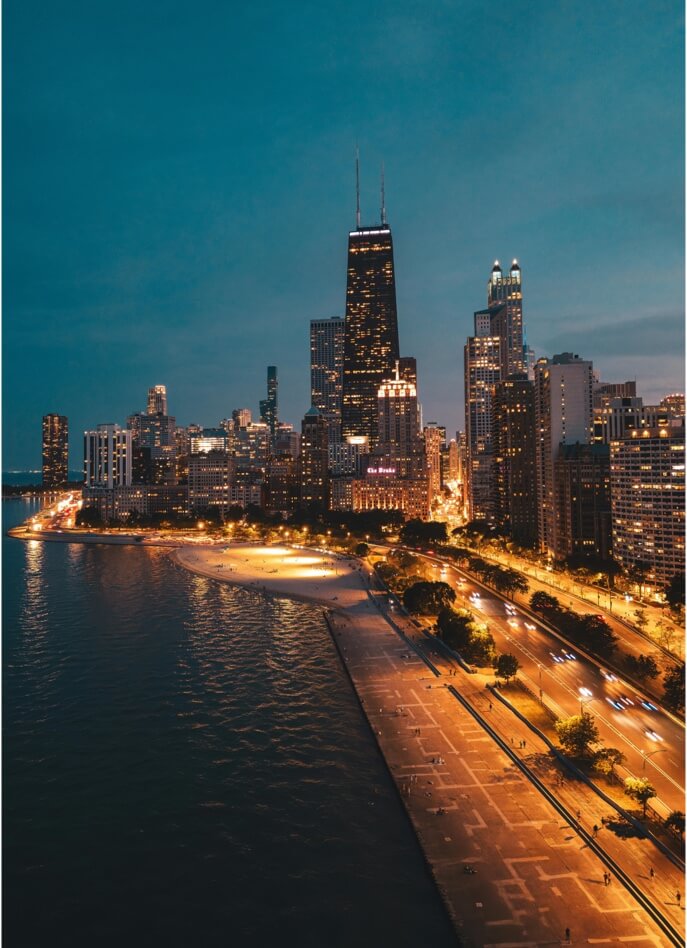There will be moments in any good story where the main character is under duress. Where something is… wrong. How does a filmmaker convey this? With a Dutch angle. A Dutch angle is a classic cinematic technique to create unease inside the mind of the viewer. In this post, we’ll break down Dutch angles so that you can use them in your next project.
How to Achieve The Dutch Angle Shot
dutch angle shots
Dutch angle basics
How do you enhance an unsettling moment in your script through cinematic techniques and visual language? One great way to do this is with a Dutch Angle. We'll start with a Dutch angle definition before moving onto canted angle examples and how you can identify and enhance moments in your work. So, what is a Dutch angle camera shot?
DUTCH ANGLE Camera Shot DEFINITION
What is a Dutch angle?
A Dutch angle (known as a Dutch tilt, canted angle, or oblique angle) is a type of camera shot that has a noticeable tilt on the camera’s “x-axis.” Directors often use a Dutch angle to signal to the viewer that something is wrong, disorienting, or unsettling.
The camera technique was pioneered by the German Expressionists in the 1920s. Thus, the “Dutch” is used in the original sense of the word that meant German. It is not connected to Holland.
What to consider when planning a Dutch angle shot:
- The degree of your tilt
- The depth of field for your shot
- The vertical level of your view
An oblique angle of the camera is just one of the many camera angles possible and can even be combined for additional effect. Here's a rundown of every camera angle, how they work, and whey they might work best in your next shot list.
Ultimate Guide to Camera Angles • Subscribe on YouTube
As we explore the canted angle in detail, keep in mind that the Dutch angle shot does not live in a vacuum. Yes, Dutch angle shots look awesome and feel stirring. But it’s critical to introduce your canted angle in the right place, at the right time.
Consider the Dutch tilt within the context of your entire shot list. Every shot matters based on the relationship with the other shots in the scene. An oblique angle can skew the audience’s perspective, so they’re in the same mindset as the characters they’re watching on the screen.
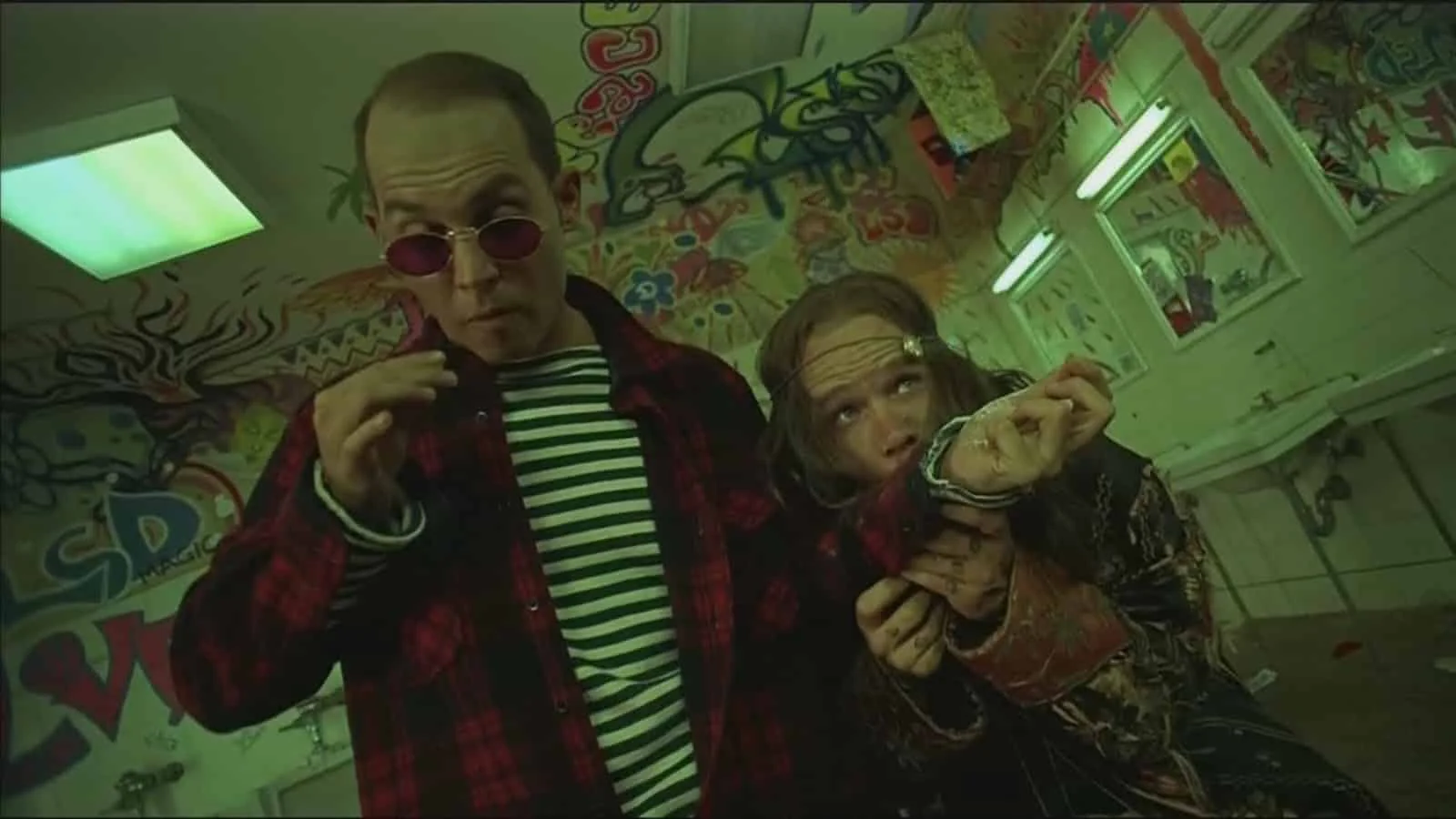
Dutch angle camera shot from Fear and Loathing in Las Vegas
Again, wrong doesn’t mean immoral or bad, it just means different from the orthodox way of perceiving information. You’re not judging the behavior, just exposing the abnormality.
The Dutch angle shot used to be called “The German Angle” because this camera angle came to prominence in early German Expressionism. It should really be called a "Deutsch" angle but somewhere along the line it became "Dutch."
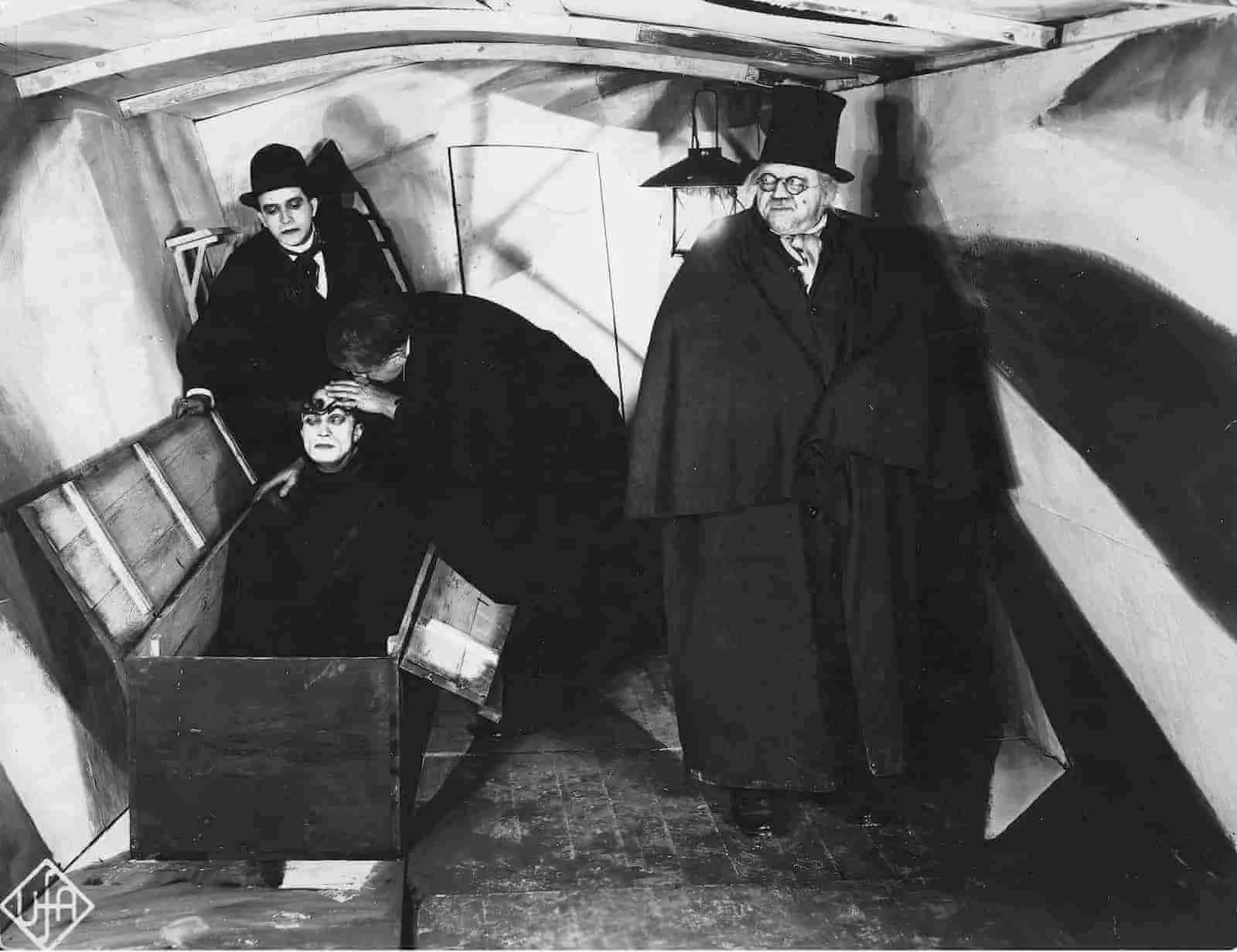
The Cabinet of Dr. Caligari and the Dutch tilt
As film evolved, and German directors and cinematographers came to Hollywood, they brought the Dutch angle with them. It soon became part of mainstream Hollywood, especially in Film Noir, which also came out of German Expressionism.
dutch angles in movies
Dutch angle examples
Let’s go over some Dutch tilt film uses. Are you making a movie with a non-traditional villain and want to let the audience know how skewed their vision of the world is?
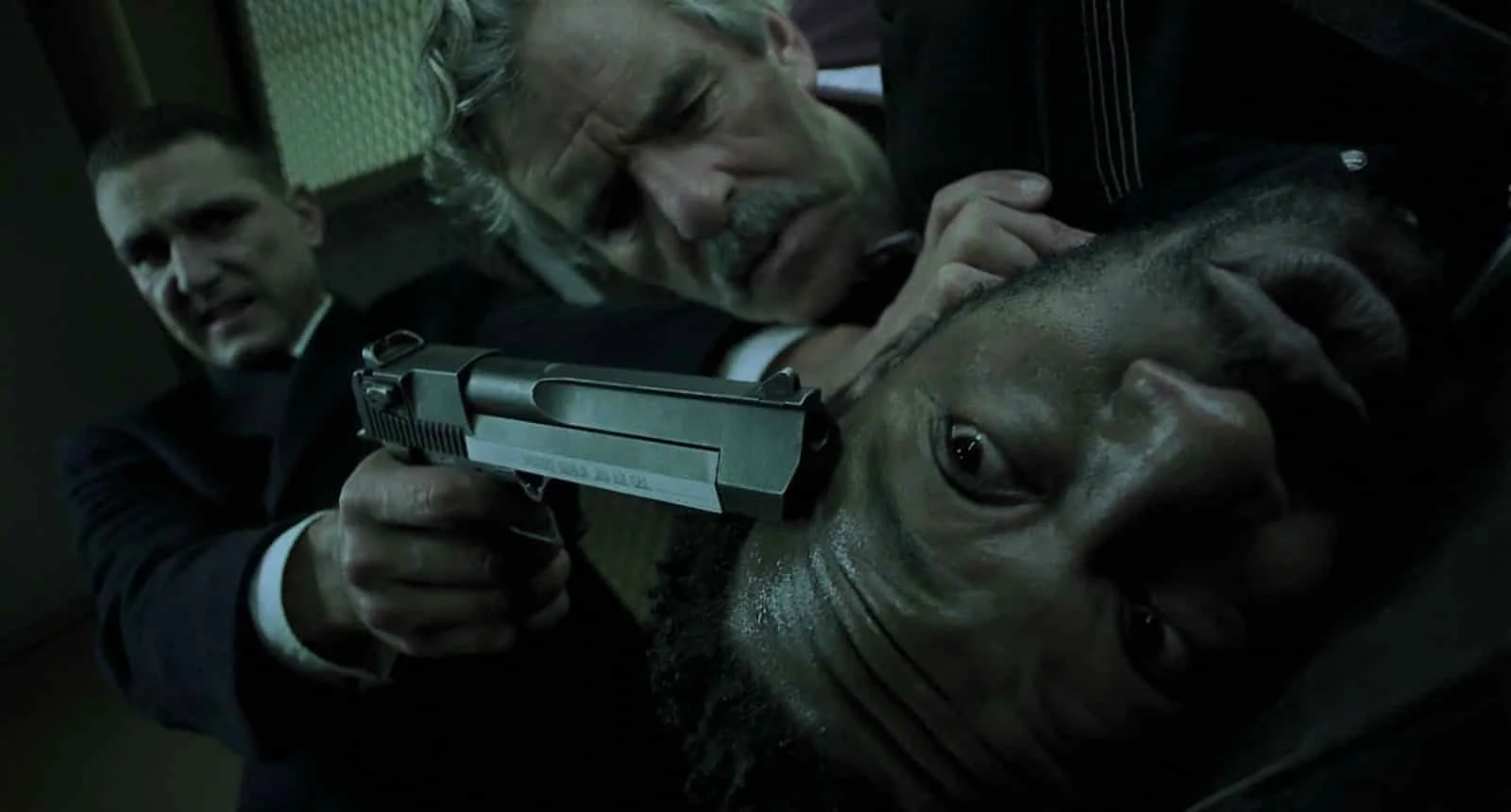
Guy Ritchie plays with angles in Snatch
Quentin Tarantino uses Dutch angles all the time, even when his protagonists have the upper hand, like in this shot from Inglorious Basterds. We know something bad is about to happen here — and the oblique angle is there is to seal the deal.
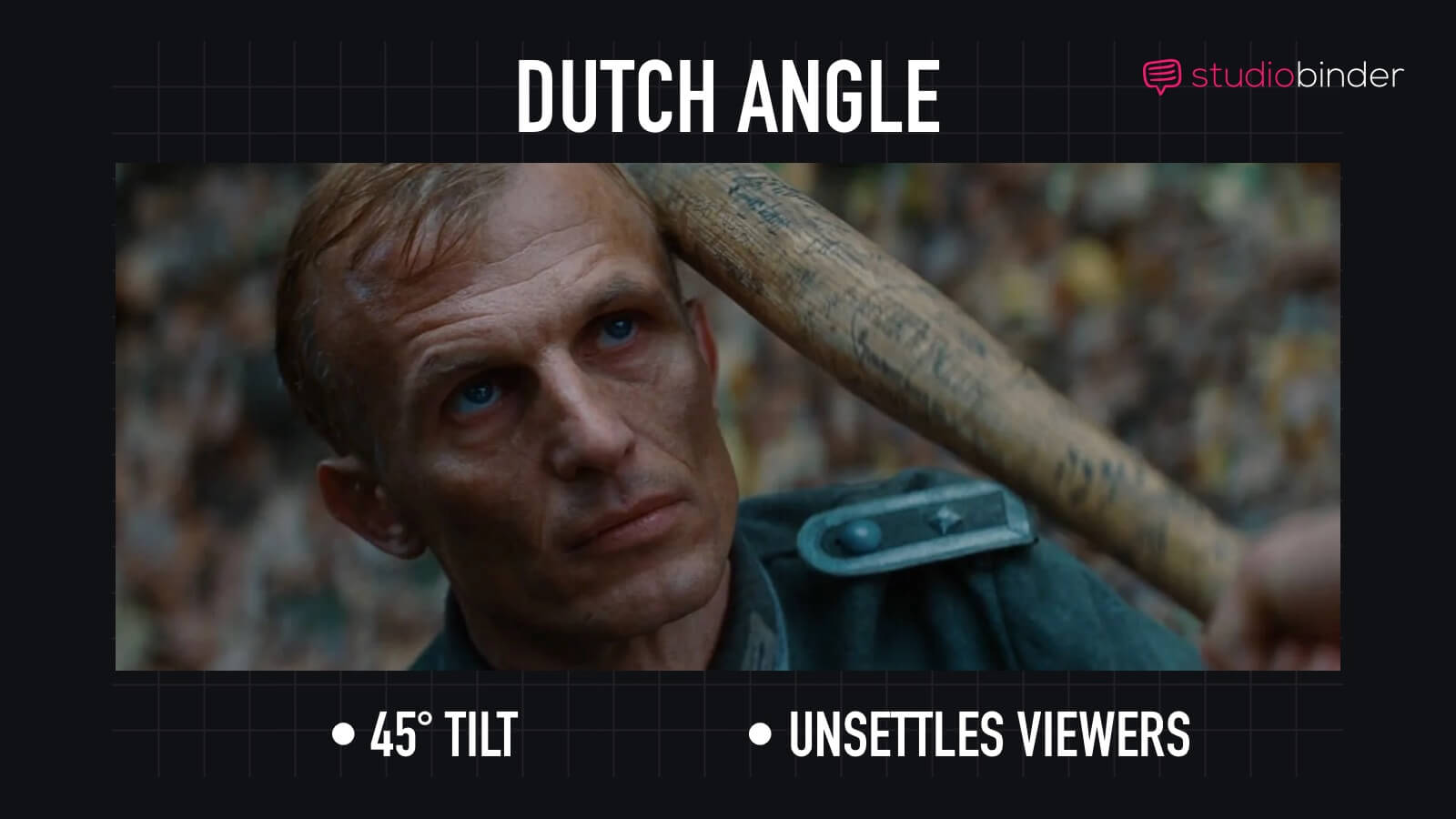
Dutch angle camera shot example in Inglorious Basterds
Directors have used the Dutch angle to create a feeling, and to give the viewer a sense that the world is figuratively warped…But what if your scene actually involves a warped world?
Inception uses the Dutch angle much more literally than usual, and in many cases your POV shots will have a natural Dutch angle applied to give us the sense that we’re using the character's eyes.
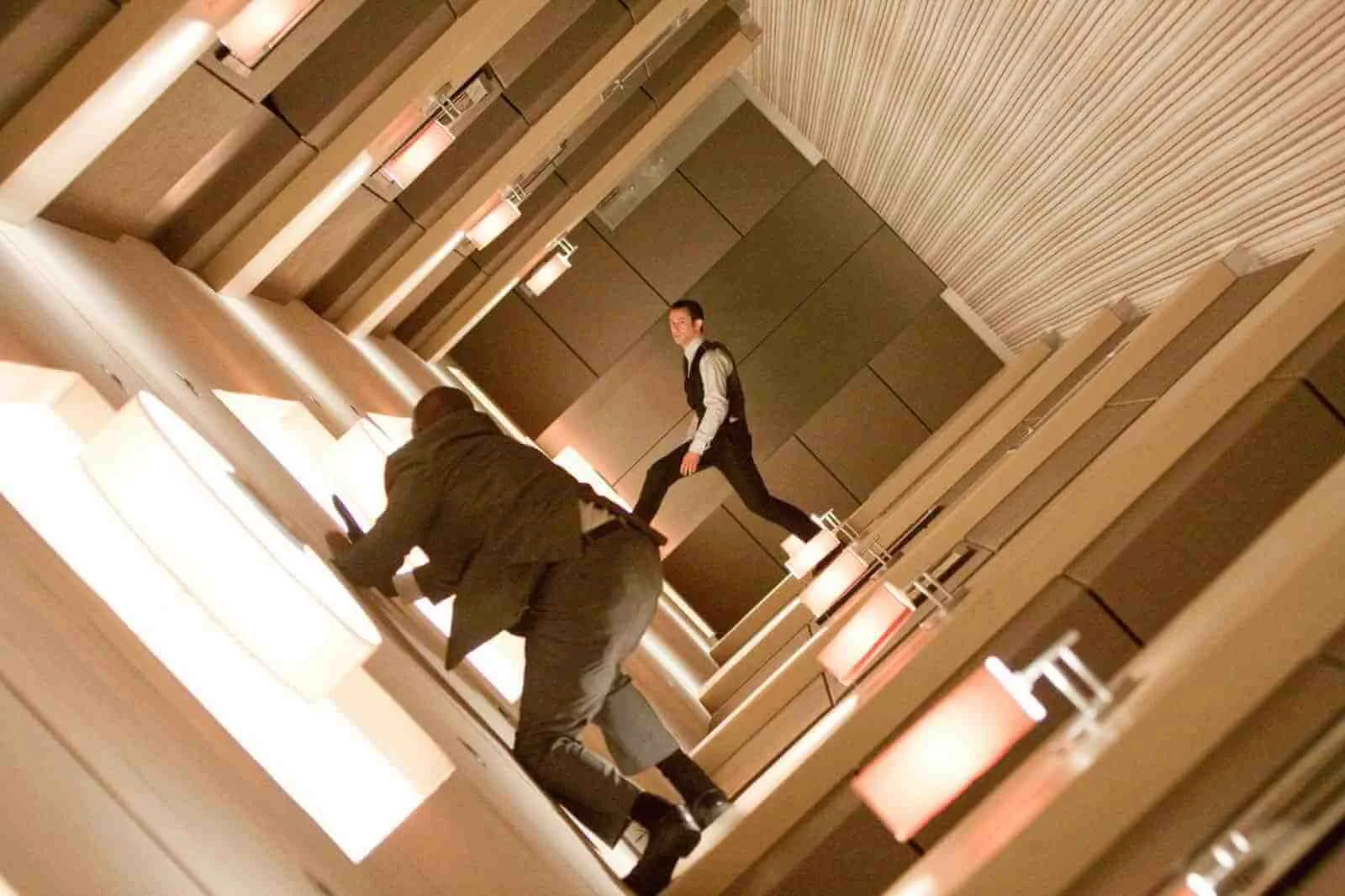
Dutch angle shot example in Inception
You can use your Dutch angles in exciting scenes, like the one below from Harry Potter, to help raise the stakes of the action in progress.
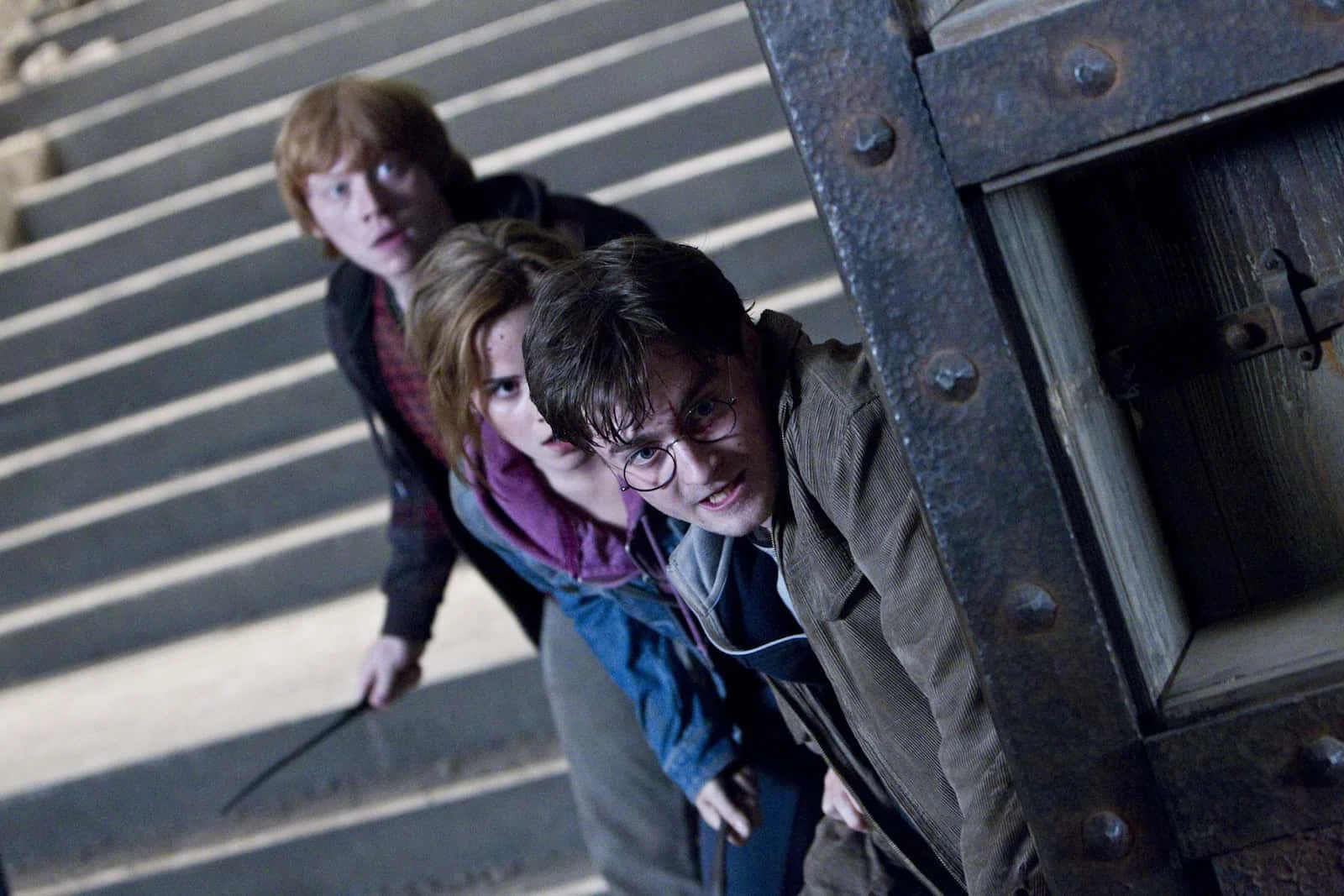
Dutch Angle example in Harry Potter
Now that we have some background and seem some examples of the Dutch angle, let's move onto how a master filmmaker like Brian De Palma uses them. We're going to look at a scene from Mission: Impossible when Ethan Hunt realizes he's become the target.
DUTCH TILT
How to use a Dutch angle
When you read through a good script, you will find a moment where everything changes. Where something big happens. These are the moments where your film literacy and knowledge of filmmaking techniques will come in handy.
De Palma finds the moment in Mission: Impossible at the climax of Act I. We brought the Mission: Impossible script into StudioBinder's screenwriting software so we can see how you how to identify the moment and share it with your collaborators.
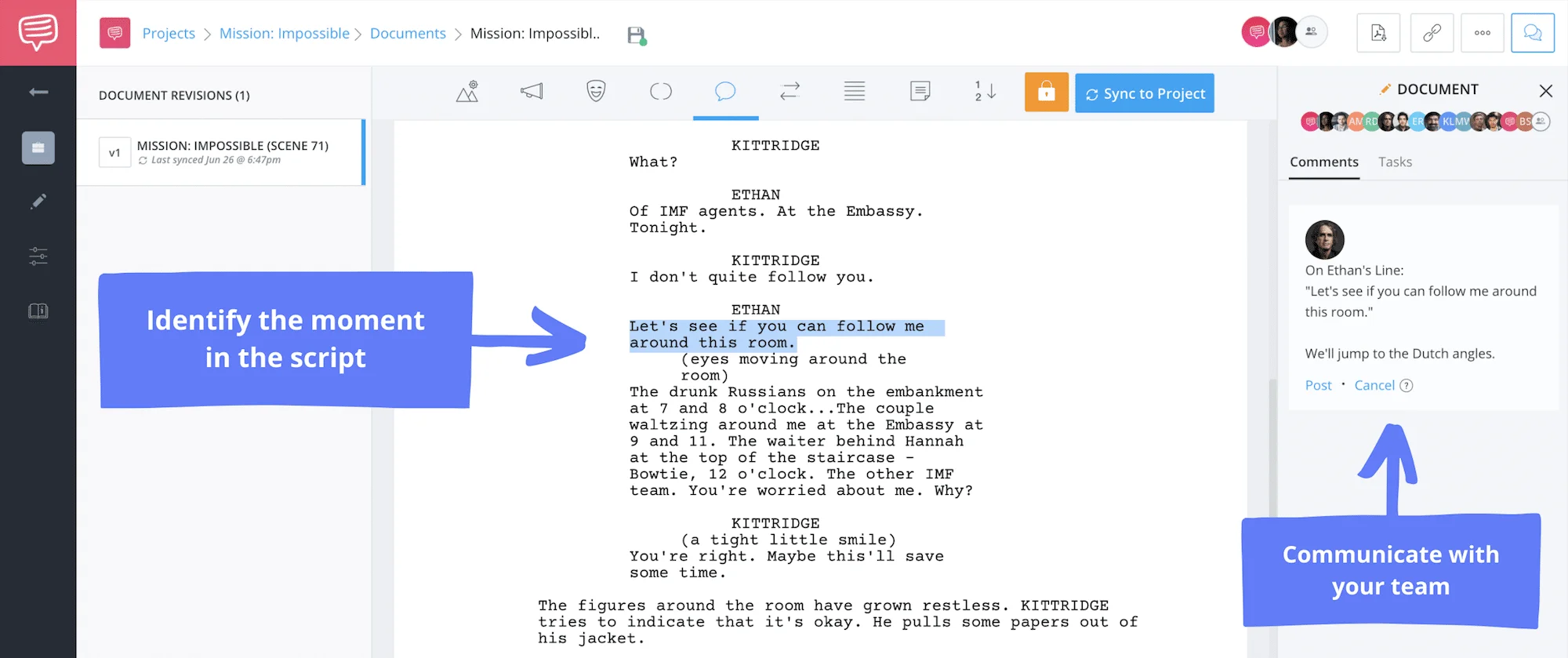
Call out the ideal moment to your team
In this scene, Ethan Hunt arrives at a restaurant in Prague. His entire team has just been murdered, and he meets with his boss, Kittridge. Kittridge thinks Ethan murdered his own team on behalf of an arms dealer. Ethan doesn’t know this yet, and neither does the viewer.
Kittridge has also brought a second team of IMF agents to the meeting, which he has failed to mention to Ethan. They have a brief conversation until Ethan notices something is…wrong. Let's watch the scene and pay attention to the moment De Palma shifts the tone with a precisely-placed Dutch tilt.
Focus Dutch angle scene from Mission: Impossible
De Palma doesn’t just find the moment in the script to use a Dutch angle, but rather he finds the precise moment within the scene. Then, he uses his shot lists and storyboards to indicate when he’d like to deploy this cinematic technique.
The reason Dutch angles work so well in this scene is that they’re preceded by shots with standard composition.
Switching from normal to extreme framing creates an even larger shift within the scene, and we see this transition play out in real time. Otherwise, you end up with Dutch angle overdose, and it starts to lose its impact.
Related Posts
dutch angles in film
Recapping the Dutch angle
Let’s recap:
Before you decide to use a Dutch angle, remember to:
- Identify the moments during your script breakdown.
- Consider the moments during your shot list & storyboard.
- Enhance the moments with advanced film grammar.
Here are some other considerations you should make when using a dutch angle.
Tilt Degree
A 20-degree tilt will obviously make the viewer feel differently than a 45-degree tilt. The more you tilt the more unsettling your shot becomes. Consider this when preparing your own Dutch angle, and how the imagery in your shot aligns.
Depth of Field
The Dutch angles De Palma uses in this scene have a very shallow depth of field. The shallow depth of field makes an already unsettling shot become claustrophobic. It ratchets up the tension.
Camera Level
De Palma uses different camera levels for each Dutch angle in this scene. The shot on Ethan is disorienting and claustrophobic and De Palma wants us to connect with Ethan's discomfort.
The Dutch angle is a very powerful choice– it immediately elicits a specific reaction in an audience. This makes it a great tool if it’s used right.
Related Posts
CAMERA ANGLES
Get Inspired. Explore More Angles.
Explore the different types of camera angles, and learn how to combine them with other shot specs for visual storytelling.
Different Types of Camera Angles
Share your vision with elegant shot lists and storyboards.
Create robust and customizable shot lists. Upload images to make storyboards and slideshows.
